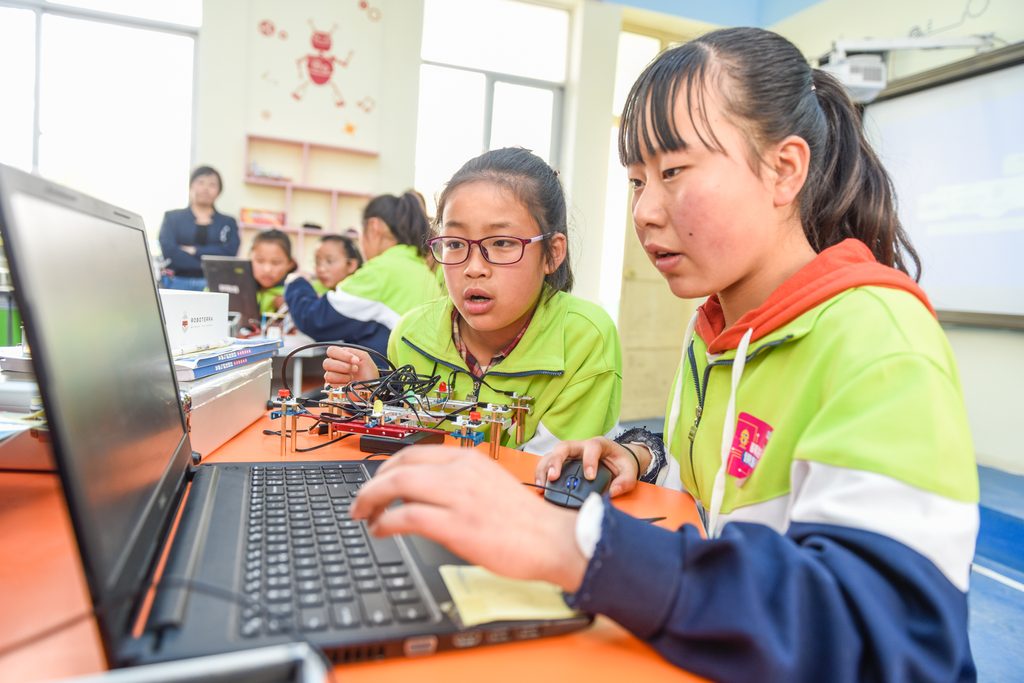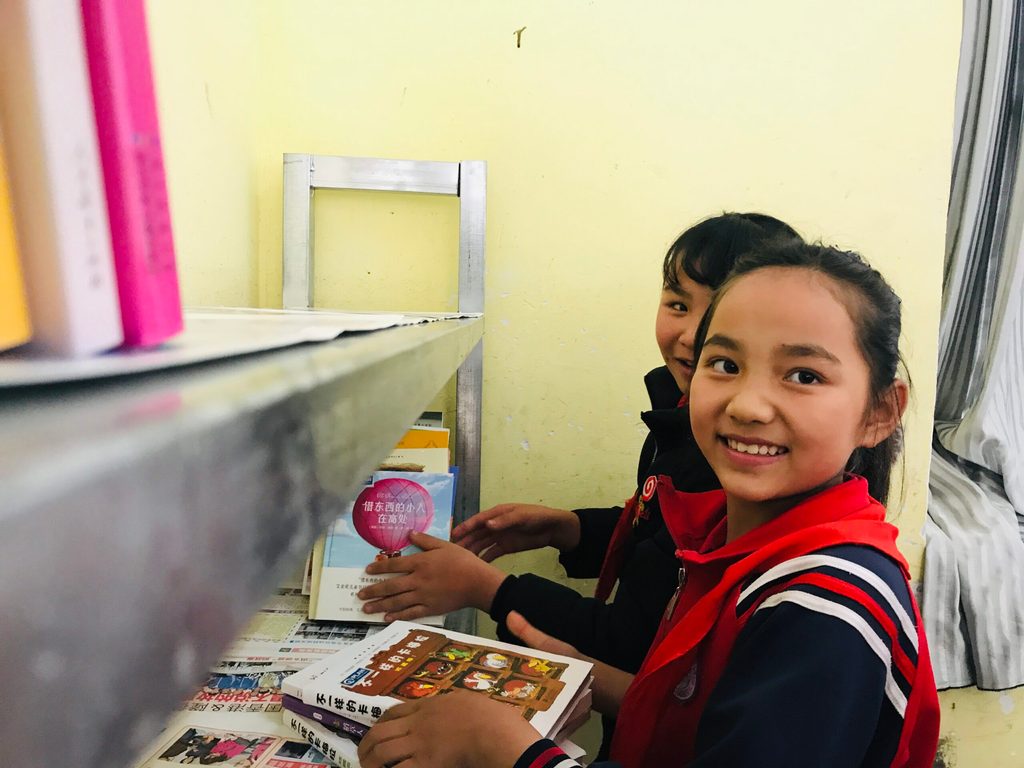China home
Plan International China works for and with children to transform their lives and development.
We support children, especially those in difficult situations and those affected by migration, to learn for life through gender-friendly, inclusive and quality education.

The education projects Plan International has implemented in Shaanxi, Ningxia and Yunnan support rural children, especially girls, to access a quality education.
In the past year, we launched the girls and technology project to promote girls’ STEM education, the children’s reading project to boost reading and social skills in primary schools and a child-led activity to tackle gender inequality and establish a gender-responsive school environment.
Through our programmes, the awareness of gender equality among children, teachers and parents has improved.
Stereotypes regarding boys and girls in academic success and career choices can shape their development. Over time, even the children themselves will believe in the limitations of their own ability and potential.
In response to China’s practices and policies in promoting and exploring STEM education (an interdisciplinary method of teaching that integrates science, technology, engineering and mathematics), throughout 2021, through cooperation with enterprises and academic institutions, Plan International has supported local education authorities to carry out the girls and technology project in 64 primary and secondary schools. This was set out to tap into the maximum potential and inspire children in rural communities, with a particular focus on girls.
By improving teachers’ capacities in STEM, running on-campus clubs, providing platforms to display student work, exposing children to robotics programming and more, STEM education is introduced and taught to children in rural communities. The project offers gender equality training for teachers, invites female representatives within the technology industry to participate in activities and talk about the application of their work in society, and breaks gender stereotypes around suitable career choices.
The project also implements the growth mindset training model of the Beijing Normal University Department of Psychology. When you teach growth mindset to teachers and children, especially young girls, it fosters a positive attitude to facing challenges and failures, allowing them to take on harder challenges in both their education and lives. This model has shown significant results in helping children, especially young girls, study STEM subjects.

The importance of reading for children’s growth and development is self-evident. However, rural children have far less access to reading resources than those in urban areas. In order to cultivate reading habits for children at a young age, Plan International worked with local education authorities to promote reading. In the rural communities of Shaanxi, Ningxia and Yunnan, Plan International trained 120 teachers across 57 primary schools and organised participatory reading events.
In Guangnan County, Yunnan and Wuzhong City, Ningxia, paired reading was introduced. By identifying the different stages of language use and cognitive development the children are in, they are given appropriate reading materials to increase their literacy level and build social skills and confidence. At the same time, schools can start a reading challenge during summer or winter breaks through the project to help students develop good reading habits and skills.
With the support of Kimberly-Clark and its Kotex brand, Plan International has worked with local education bureaus and social organisations to carry out the menstrual health education programme.
It helps young people gain menstrual health knowledge, thereby allowing girls to grow in a positive environment and thrive.
We also encourage college students to actively publicise this message on campuses to dispel the stigma and taboo around menstruation and spread accurate knowledge regarding health and hygiene. The programme will be implemented in 33 primary schools, middle schools and colleges and will benefit nearly 10,000 children and youth.